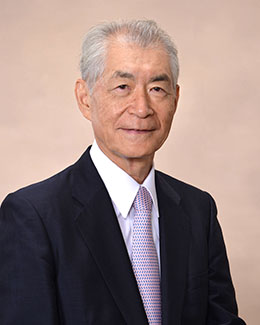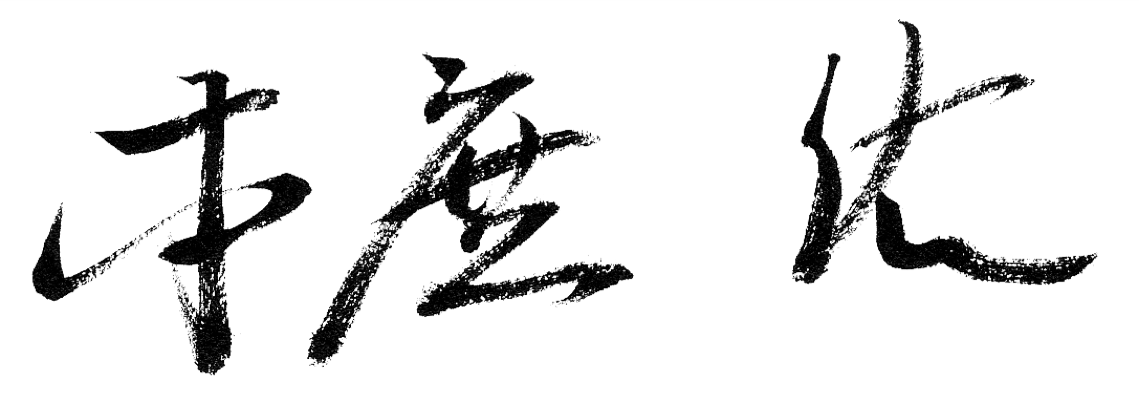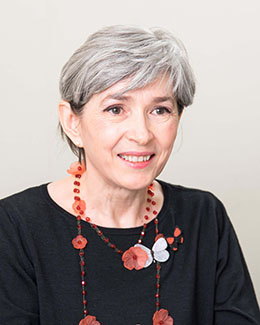Greetings

Dear Colleagues,
On behalf of Kyoto University and the Center for Cancer Immunotherapy and Immunobiology (CCII), I am pleased to welcome you to the first CCII International Symposium on Immunotherapy and Immunobiology. The symposium will be held at the Bristol Myers Squibb building on the Kyoto University campus from November 13th to 15th in Kyoto University.
Over the last decade, immunotherapy has saved countless cancer patients – many of whom suffered from malignant, metastatic tumors previously considered untreatable. To a researcher entering the field or a young physician considering options for their patients, it may be hard to grasp how far we have come. At the end of the last century, immunological treatments for cancer had gone from early promise to disappointing clinical results with a terrible, almost predictable regularity. Less than a quarter of a century later, immunology offers the greatest hope to cancer patients and their families.
While we are justly proud of these achievements and the curiosity-driven basic research that made them possible, we must keep in mind that, for many patients, the promise of immunotherapy remains unfulfilled. Modern cancer immunotherapy was born of a conceptual revolution that focused therapeutic development on removing the molecular brakes of the immune system, unleashing its full destructive potential on tumors. New conceptual and technical advances are needed to drive the next cancer immunotherapy revolution. Here at the CCII International Symposium on Immunotherapy and Immunobiology, you will hear leaders in the field present cutting-edge approaches and ideas.
We also welcome you to the CCII’s new home, the Bristol Myers Squibb Building, with almost 10.000 squares meters designed by renowed architect Tadao Ando. The center will house up to 300 researchers, staff, and students, along with dedicated space for private sector partners. The building was made possible by generous funding from the Japanese government and Bristol Myers Squibb.
Thirty years ago, we first discovered PD-1 here in Kyoto University. It was a long road, with many bumps and turns along the way, to the transformative anti-PD1 drugs used in the clinic today. The CCII was founded in 2020, with to discover new immune interventions that can control most cancers by 2050. To begin to map the road ahead for these next thirty years is why we are welcoming you here, to our inaugural Symposium.
We hope you will leave Kyoto inspired by these presentations, nurturing projects, and forming collaborations – whether you are a researcher, a physician, or an industry professional – and that you return to your laboratories and institutions with a rekindled fire in the search for new cancer therapies.
Thank you for participating in the first CCII International Symposium on Immunotherapy and Immunobiology.
Warm regards,

Tasuku Honjo
Director of the Center for Cancer Immunotherapy and Immunobiology
皆様
京都大学並びにがん免疫総合センター(CCII)を代表し、CCII設立記念シンポジウム「1st CCII International Symposium on Immunotherapy and Immunobiology」への皆様のご参加を心より歓迎いたします。
この10余年、免疫療法によって多くのがん患者の方々が救われてきました。その多くは、治療不可能とされていた悪性腫瘍や転移性腫瘍に苦しんでおられた方々です。それまでのがんに対する免疫学的治療は、そのほとんどが期待外れの結果に終わっていましたが、現在では免疫学は、がん患者の方々とそのご家族にとって大きな希望となっています。
私たちは、それを可能にしたひたむきな基礎研究とその成果を誇りに思う一方で、すべてのがん患者の方々を幸せにできてはいないことを忘れていません。現在のがん免疫療法は、免疫系のブレーキを外し、腫瘍に対する免疫系の破壊力を解放するという革新的な概念から生まれました。次のがん免疫療法の革命を起こすためには、新たな概念的および技術的な進歩が必要です。「1st CCII International Symposium on Immunotherapy and Immunobiology」において、この分野のリーダーたちの最先端のアプローチやアイデアに、ぜひ触れていただきたいと思います。
シンポジウムは、安藤忠雄氏の設計によるCCIIの新たな研究拠点、ブリストル・マイヤーズ スクイブ棟にて開催いたします。研究者を最大300名収容でき、民間企業パートナーのためのスペースも備えているこの施設は、日本政府とブリストル・マイヤーズ スクイブ社からの寛大なる資金提供によって設立が実現したものです。
30年前、私たちはここ京都大学で初めてPD-1を発見しました。今日、臨床で使用されている画期的な抗PD-1抗体薬が誕生するまでの道のりは、紆余曲折を経た長いものでした。2020年に設立されたCCIIは、2050年までにほとんどのがんをコントロールできる新しい免疫治療法を発見することを目標に定めています。今回、設立記念シンポジウムに皆様をお招きし、この新たな30年の道筋を描き始めたいと思います。
参加される研究者、医師、あるいは医薬業界の専門家のみなさまが、このシンポジウムにインスパイアされ、新たながん治療法への探究心に燃えて、それぞれの研究室や研究機関に戻られることを願っております。
皆様のご参加を心よりお待ちしております。
がん免疫総合研究センター(CCII)
センター長
本庶 佑


Dear Friends,
As Vice Director of the Center for Cancer Immunotherapy and Immunobiology (CCII), it is my privilege to welcome you to the First CCII International Symposium on Immunotherapy and Immunobiology. This Symposium also marks the gala opening of the CCII’s custom-built facility, the Bristol Myers Squibb Building here at Kyoto University. The CCII’s new home sits a few hundred meters from the laboratories where Tasuku Honjo and collaborators first discovered the PD-1 molecule and elucidated its role in regulating anti-tumor immunity. We hope you will agree with us that it is an auspicious setting.
Immunology and oncology are mirrors where the full complexity of biology is displayed. Variation, selection, and evolution happen in the somatic time of a patient’s life. While reacting and adapting to each other, the tumor and the host immune system distort and are shaped by all aspects of physiology, from the gut microbiota to the nervous system. It is an unstable interaction, where one side or the other ultimately gains the upper hand. For us, researchers, this is fascinating. For patients and their families, it is terrifying.
The success of PD-1 and CTLA-4 targeted therapies demonstrated that manipulating the immune system is a viable therapeutic strategy. The clinical failure, so far, of investigational treatments to block other immunological checkpoint molecules shows us that new approaches are needed. The wonderful range of speakers at this Symposium explores many of these approaches: new sources of tumor antigens, some of them unexpected and unconventional; metabolic strategies to maximize the efficacy of antitumor immunity; new techniques to gauge the genetic diversity of both patients and their tumors to provide tailored therapies; understanding and manipulating the host microbiota; and much more.
Kyoto has a long history, beautifully preserved architecture, lush nature, and a vibrant cultural scene. I hope you can find the time to sample at least some of these treasures during your stay here.
I thank you for your presence and look forward to learning much from you over the next three days.
Sincerely,

Sidonia Fagarasan
Vice Director, Center for Cancer Immunotherapy and Immunobiology
